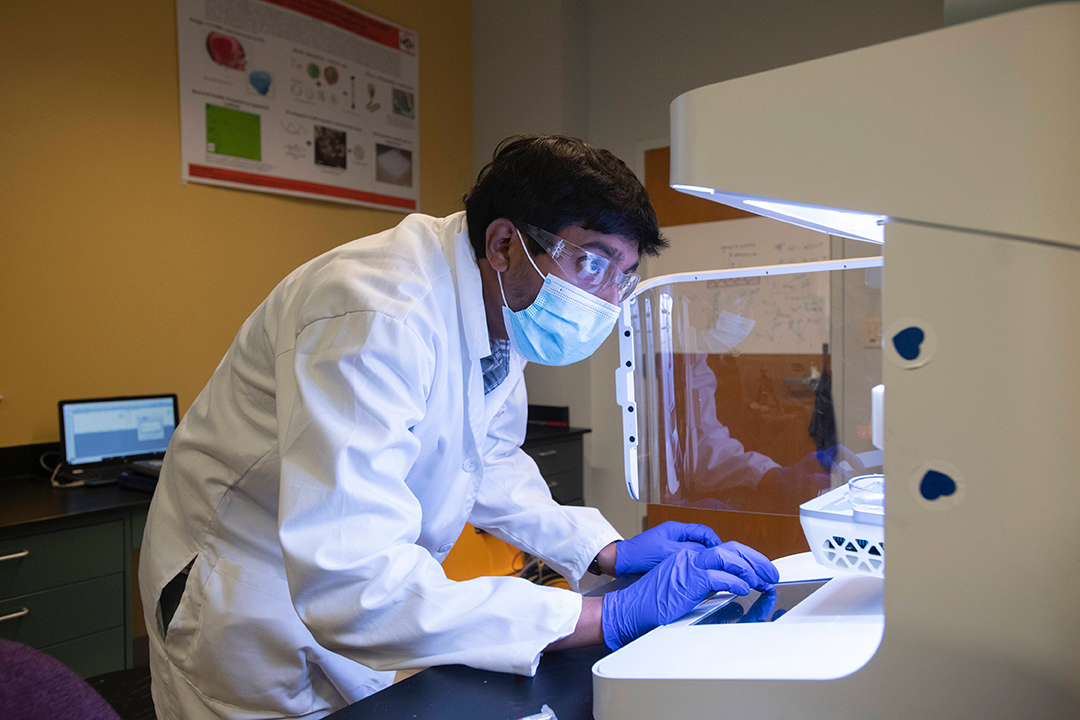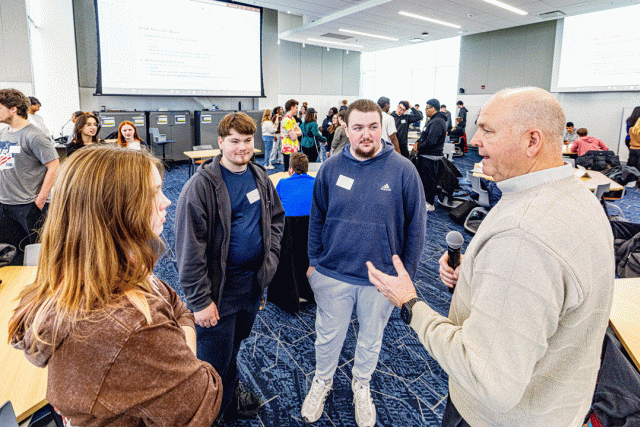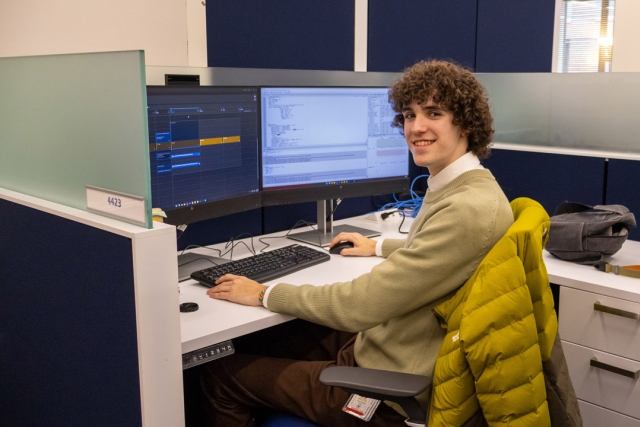Three new engineering doctoral programs expected to start next fall
Degree programs will focus on solving problems of national and global significance
A. Sue Weisler
Srikanthan Ramesh is one of 90 Ph.D. students in RIT’s Kate Gleason College of Engineering. The college will offer three new doctoral programs starting in fall.
Three new engineering doctoral degree programs at Rochester Institute of Technology were approved by the New York State Department of Education and will be prepared for new students in fall 2021. The three programs combine engineering disciplines—electrical and computer engineering, mechanical and industrial engineering, and biomedical and chemical engineering—and are focused on using multidisciplinary approaches to solving today’s global challenges.
The new programs will focus on the broad fields of manufacturing, transportation, telecommunications, health care, and energy. They will provide the same disciplinary depth that traditional discipline specific degrees would achieve. Also included in the new programs are courses titled “Interdisciplinary research methods” and “Translating Discovery into Practice,” which provide skills in professional communication, research ethics, policy, and entrepreneurship. The latter areas are not often found in doctoral degree programs, said Edward Hensel, associate dean, Research and Graduate Studies, in RIT’s Kate Gleason College of Engineering.
“That was our No. 1 goal, solve problems in those five areas. If we are addressing globally significant problems, it’s not just about the technology, it is also about the policy,” he said, adding that no one discipline could solve multidisciplinary problems of global and national significance without involving engineering, science, social sciences, and medical disciplines.
The three new doctoral programs are an evolution and replacement of the Ph.D. in engineering, a degree program established by the college in 2014. The novelty of the program was its multidisciplinary look at problem solving and its emphasis in meeting demands based on national initiatives from the U.S. Departments of Labor, Energy, Transportation and Health and Human Services.
“We found that this multidisciplinary engineering Ph.D. program was exceptionally appealing to students, so we’ve gotten phenomenal interest in the program from students who might not have considered RIT otherwise,” said Hensel. In the first year, eight students enrolled. As of this fall, there are 90 students.
The multidisciplinary concept remains the basis of the new engineering programs but with a more concentrated emphasis on the engineering disciplinary areas.
“We are trying to preserve the best of what we had as well as energize growth for the future. We feel that there will be an opportunity with three breakout programs that can meet the level of research that is coming up in the college,” said Hensel. “We are growing and maturing as a research college, and so six years ago, it might have been a challenge for each of our departments to stand up a whole cohort of doctoral level courses. In the intervening five years we’ve created new courses, and we are providing a host of masters and doctoral level courses and research projects that didn't exist half a decade ago.”
RIT’s engineering college has increased its student numbers, including young women and AALANA (African American, Latino American, and Native American) students. The college also expects to have several new graduate programs by the end of this academic year that will undergo the review process with on campus administrative groups before formal applications to the state.
Recruiting will begin for the three new degree programs in spring. Students currently in the Ph.D. in engineering degree have the option to complete their program or opt into one of the new programs.
Other Ph.D. programs offered at RIT include mathematical modeling, color science, sustainability, astrophysical sciences and technology, microsystems engineering, imaging science, and computing and information sciences.



